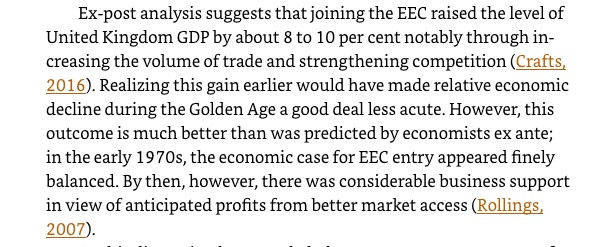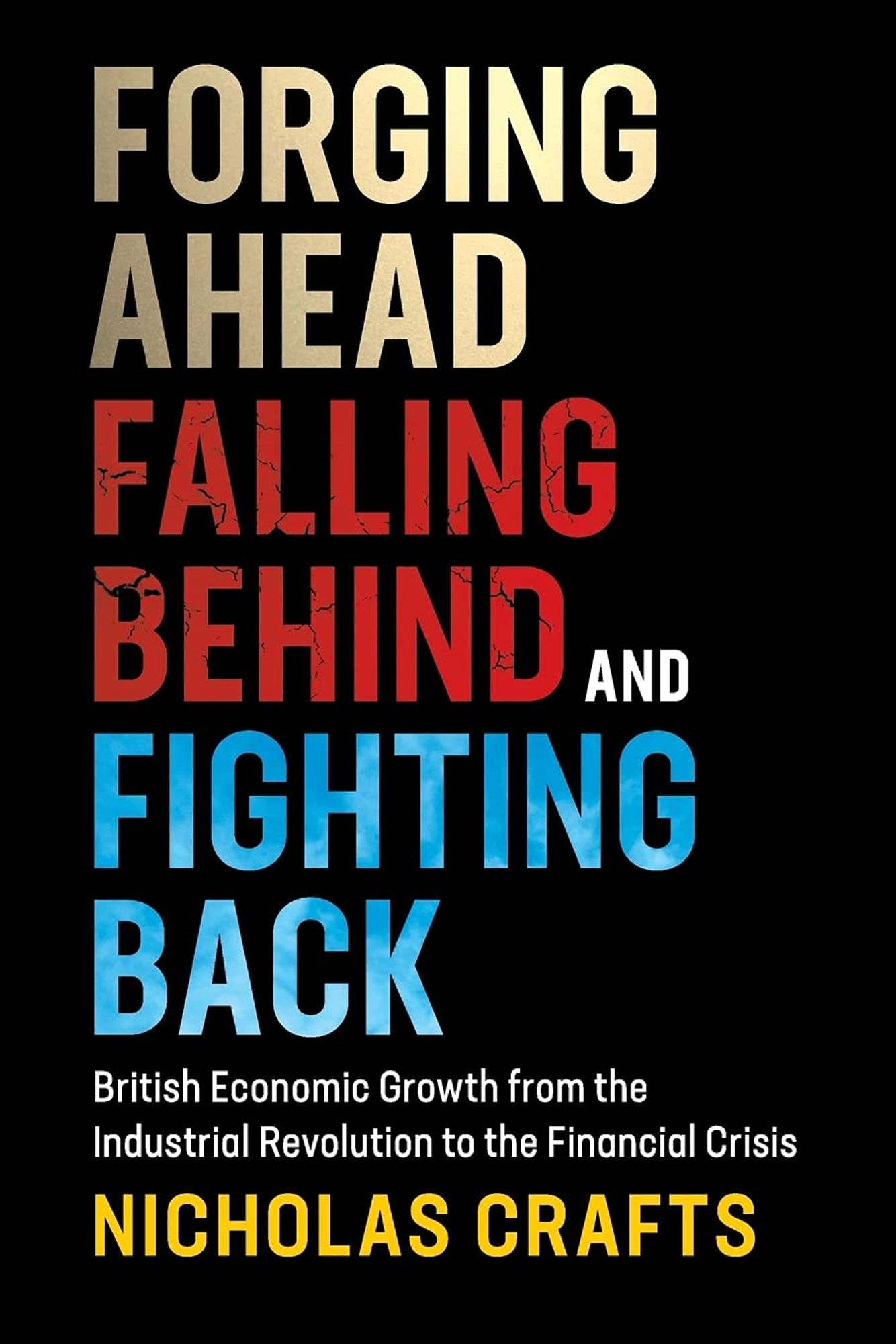I was just triggered by this, a tiny introductory part of some report on underinvestment in the UK by a trio of Adam Smith Institute alums x.com/pseudoerasmu...
I'm not disputing the recent stagnation. I'm disputing the view that the 1980s made such a big difference.
Not encouraging people to take these measurements too seriously, BUT since the "1980s did wonders for the UK's position relative to other large European economies" people do use TFP as their preferred measure of aggregate efficiency... I'm still just not seeing the big deal about the 1980s...


The surprising thing about the Crafts view of British productivity underperformance 1945-79 is how much blame he puts on (1) the lack of EEC membership; (2) market forces & prewar legacies (weak competition, bad corporate governance); (3) AS WELL AS trade unions & bad policies
That's because nationalisations in a liberal market economy, in the context of bad political governance & confrontational relations with labour, created incentives for underinvestment in some sectors, inefficient overinvestment in others.
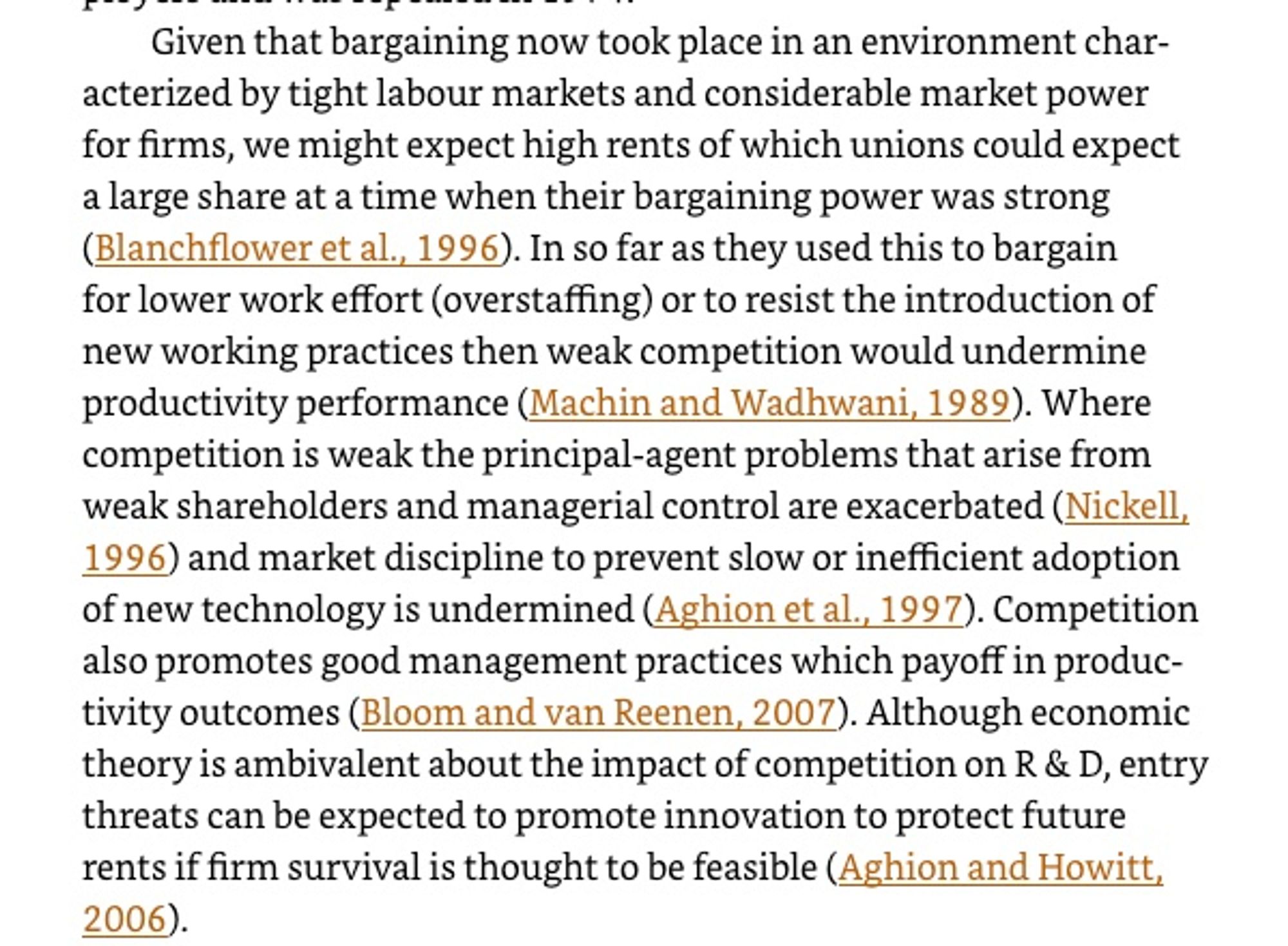
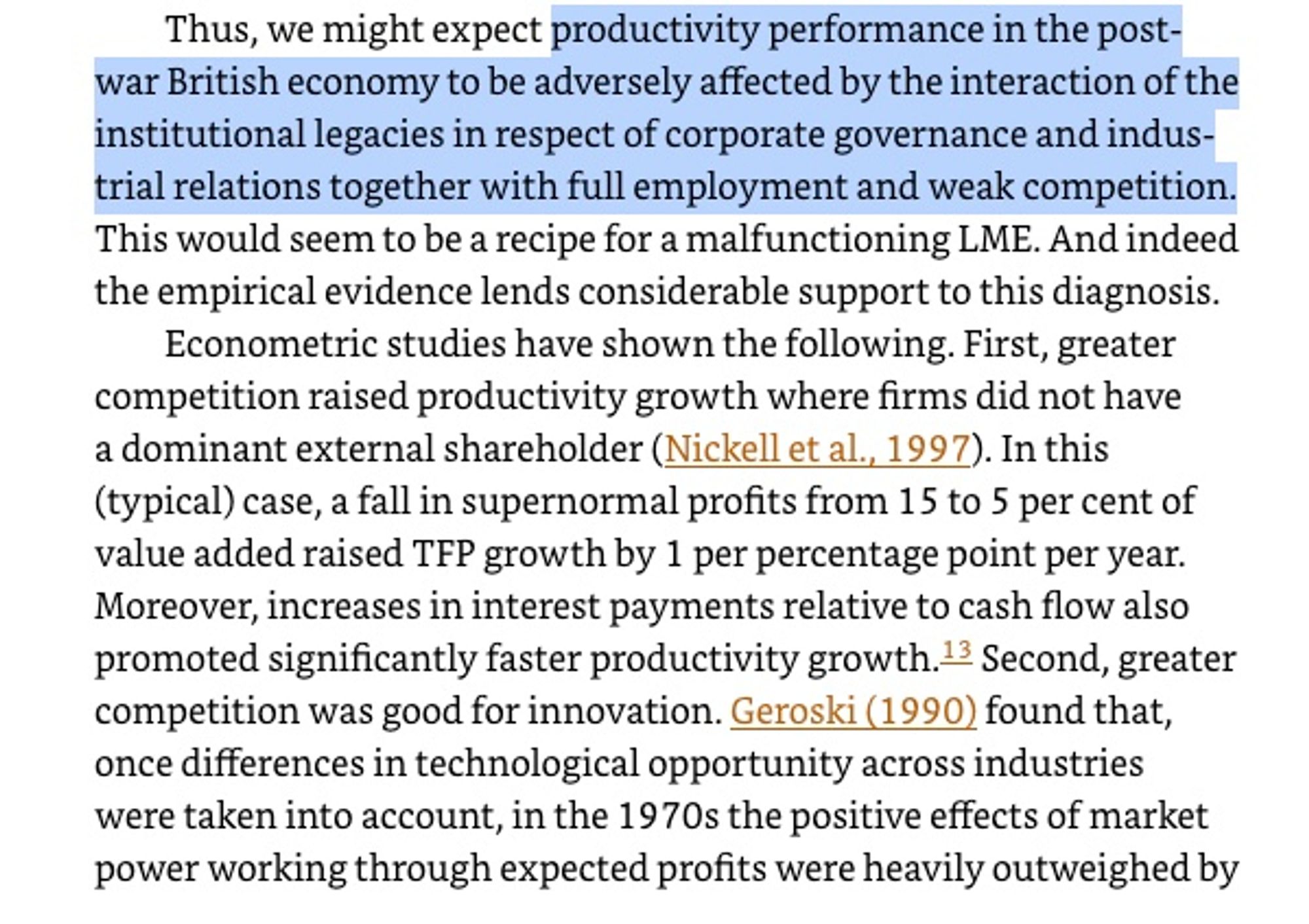
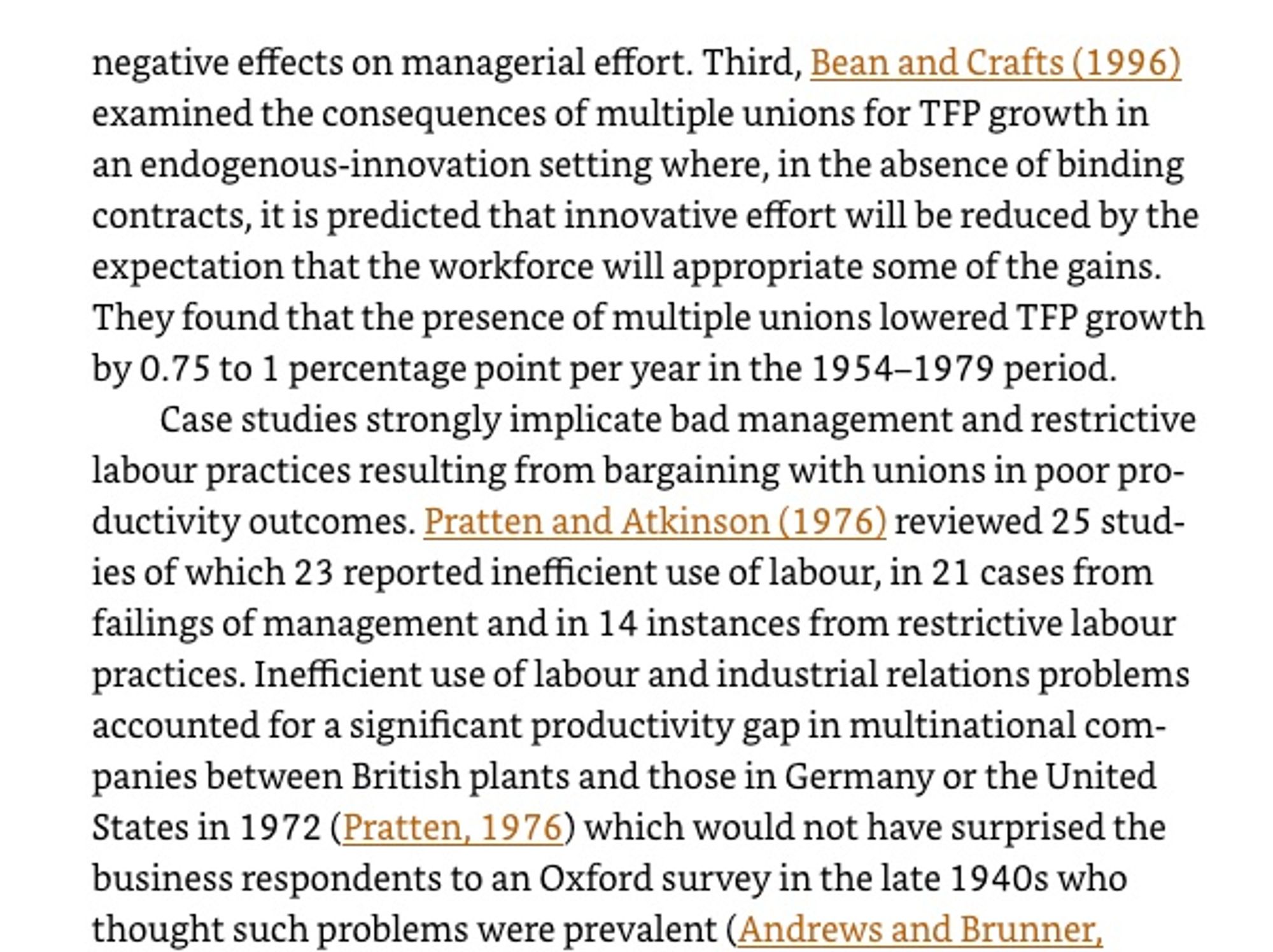
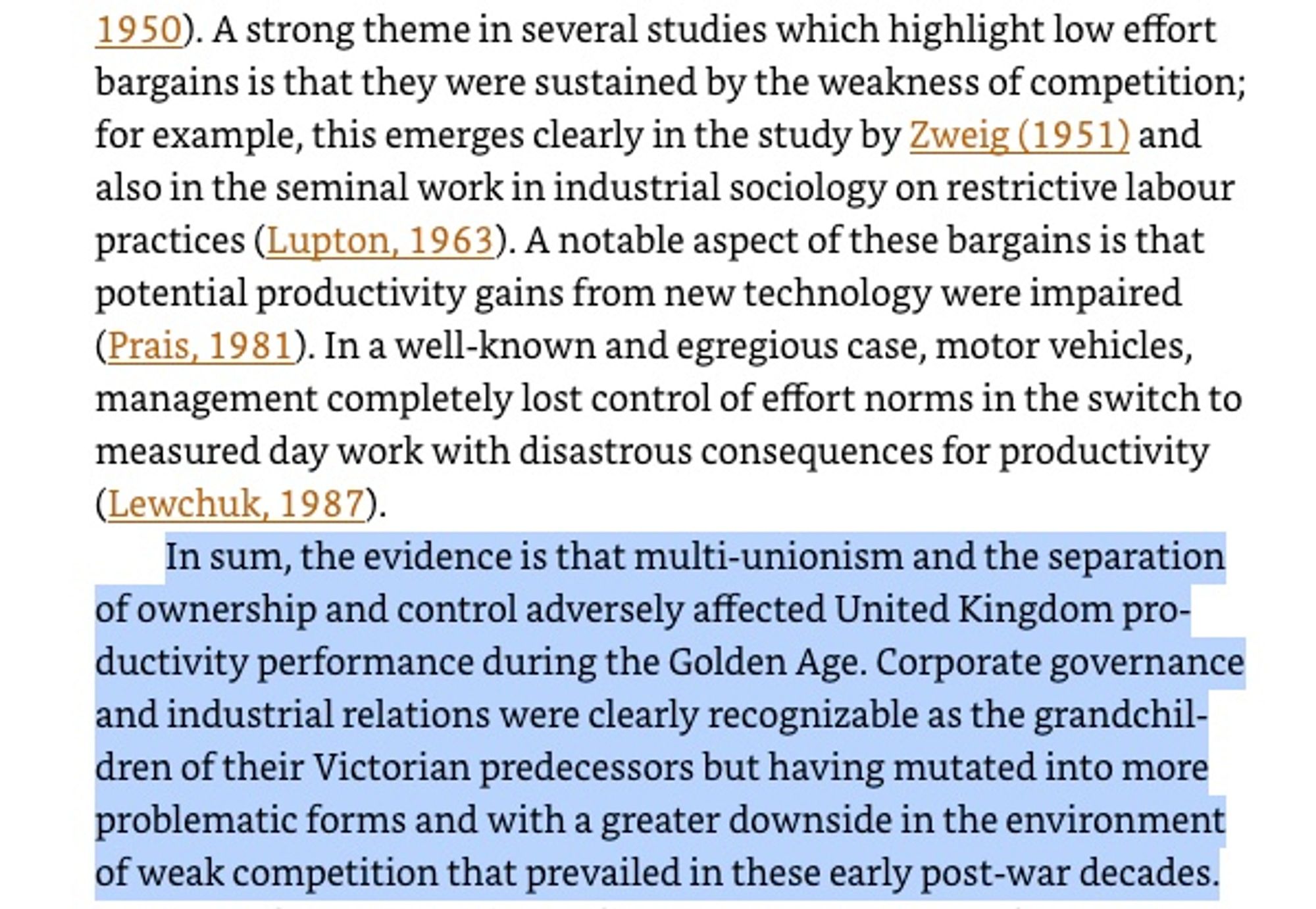
What about the privatisations? Yes Crafts also argues they improved performance. But there is a vital context for this. British nationalised industries had been inefficient *even* compared with European state-owned industries.
By ‘bad’ corporate governance, he means control by owners weakened in the postwar period, & outside control by private institutional actors strengthened; and firms were not penalised sufficiently for inefficiency or low investment or underperformance.
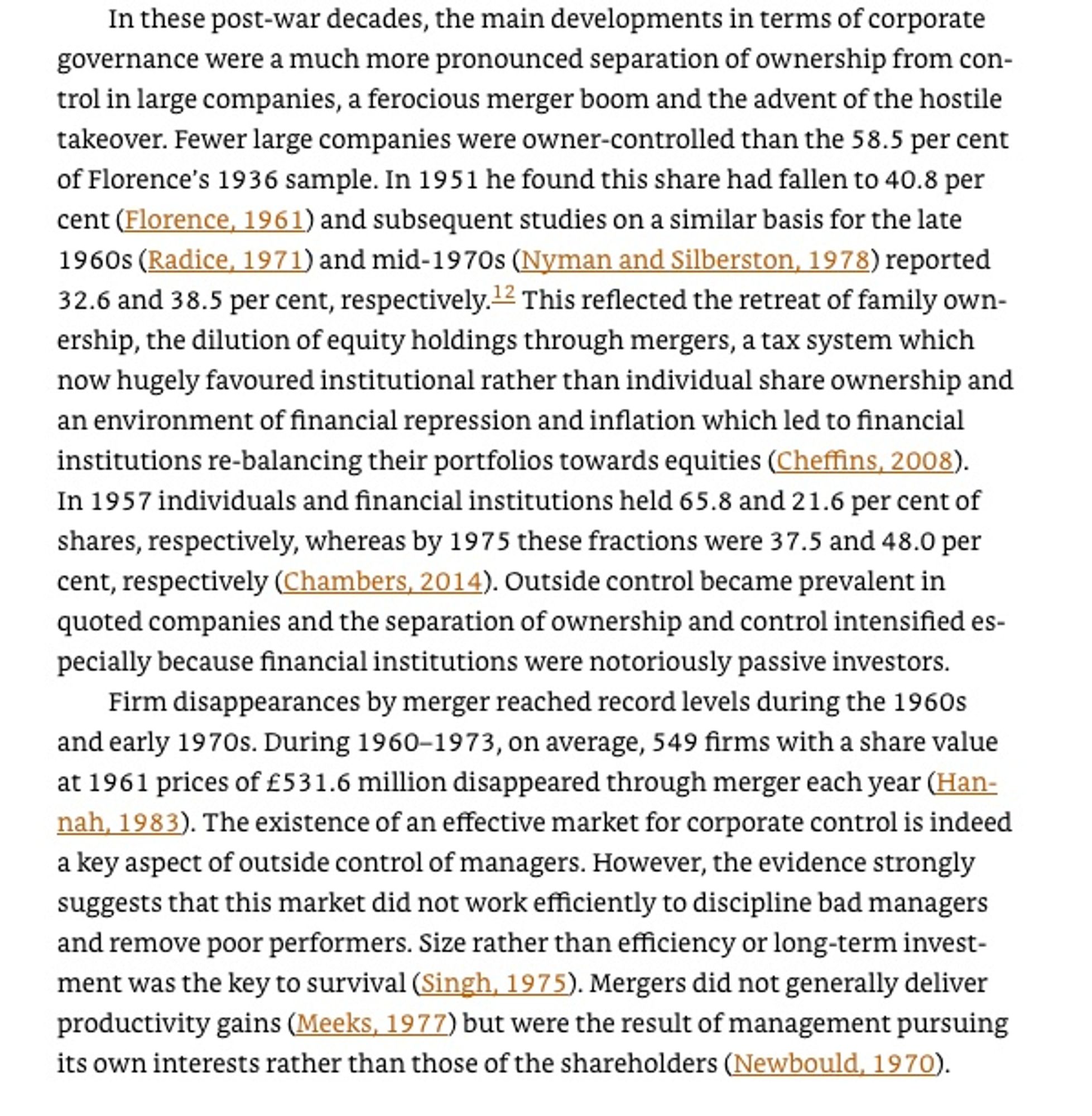
The Crafts argument on competition is that the UK ca 1979 was bedevilled by weak competition in the private sector due to (a) cartelisation, collusion, & concentration (b) lack of enforcement of competition policy and (c) bad industrial relations.
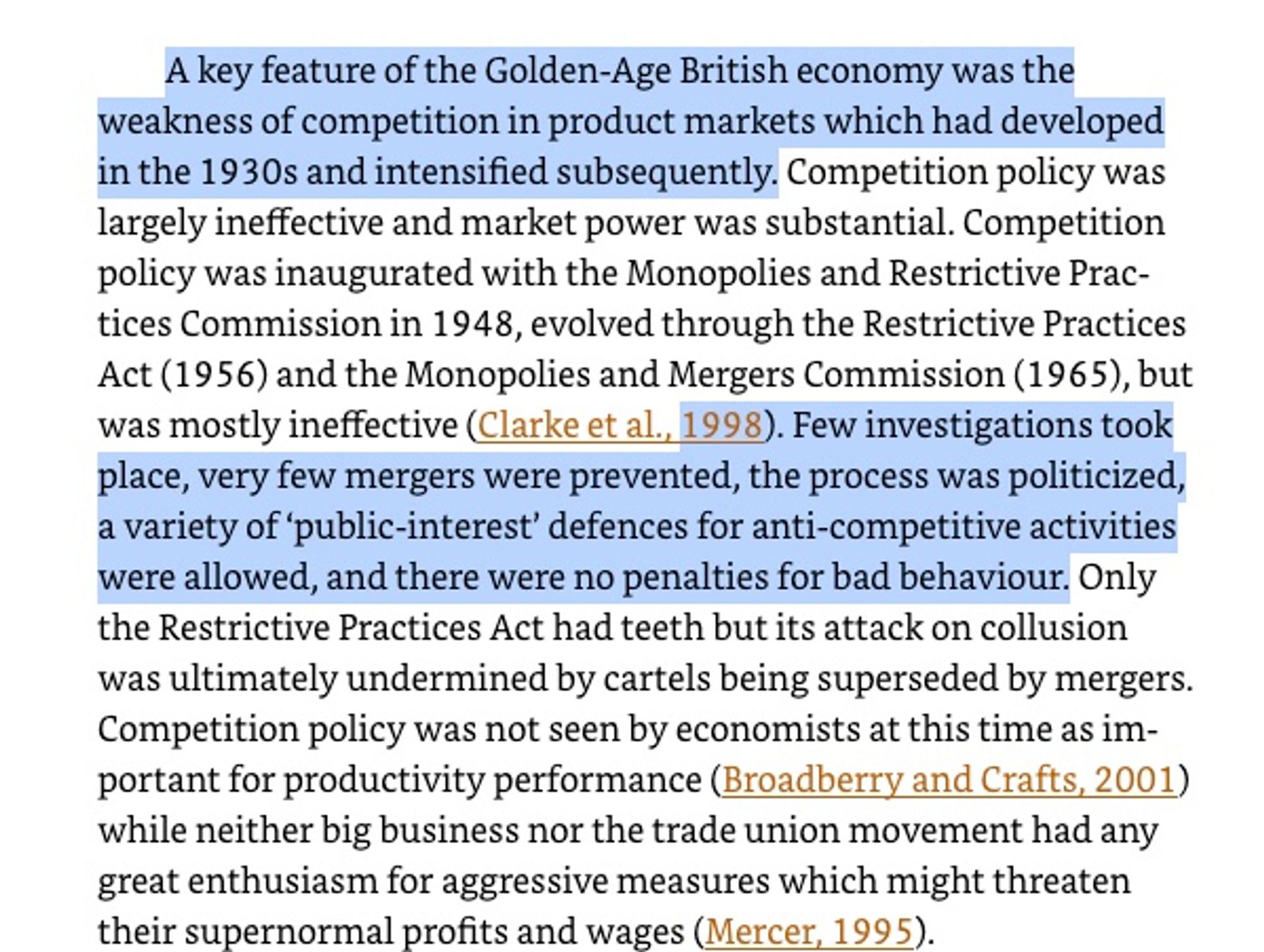
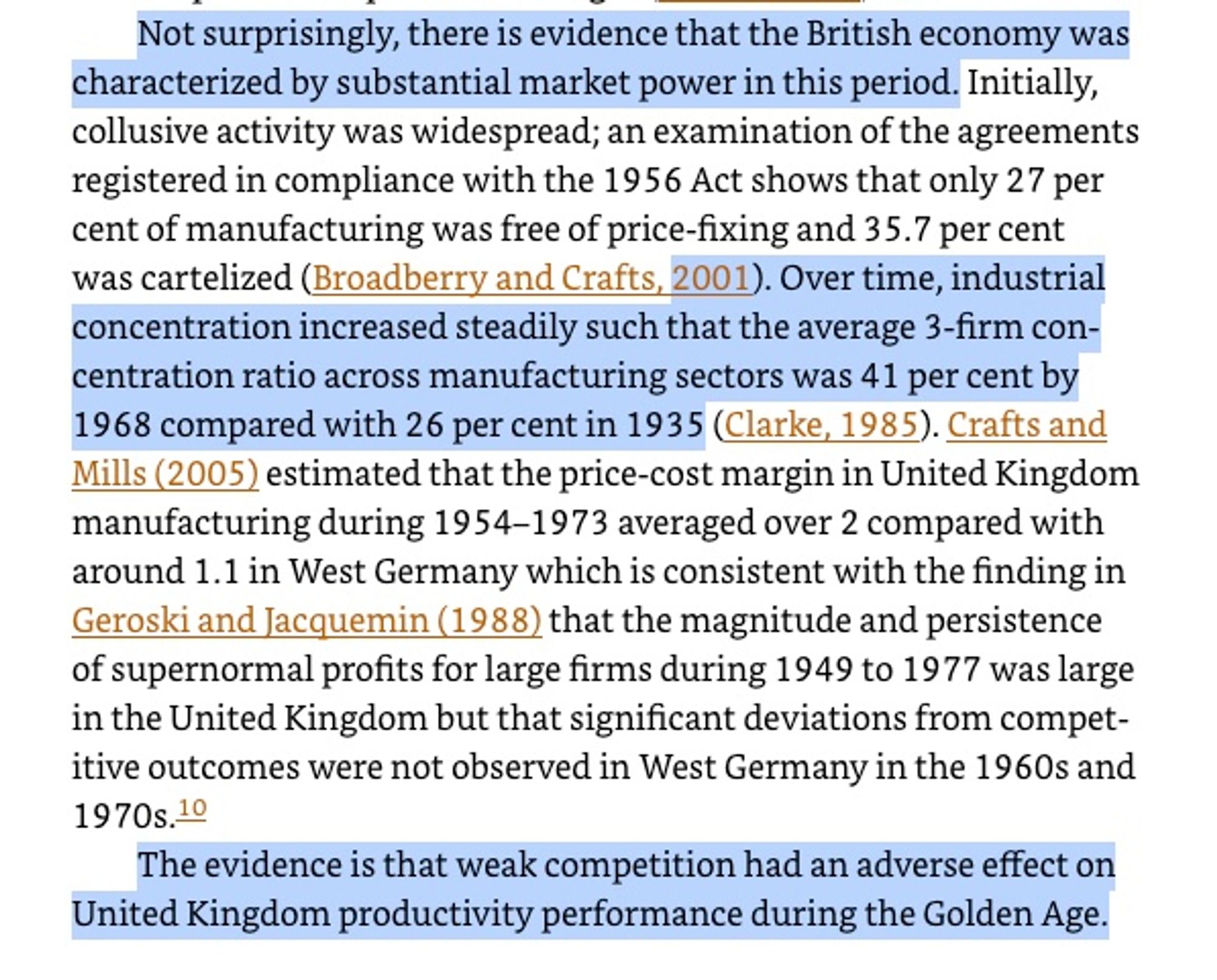
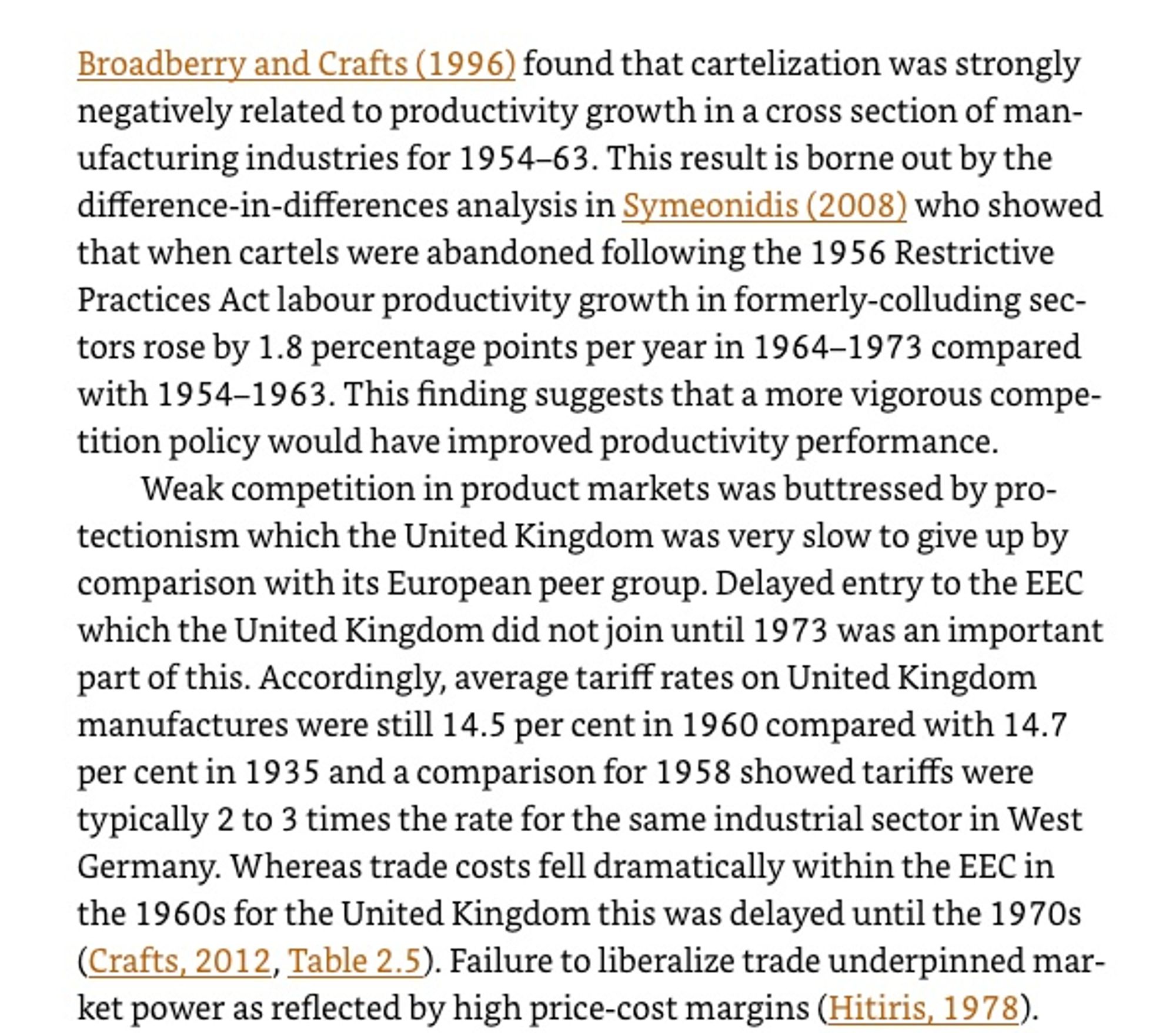
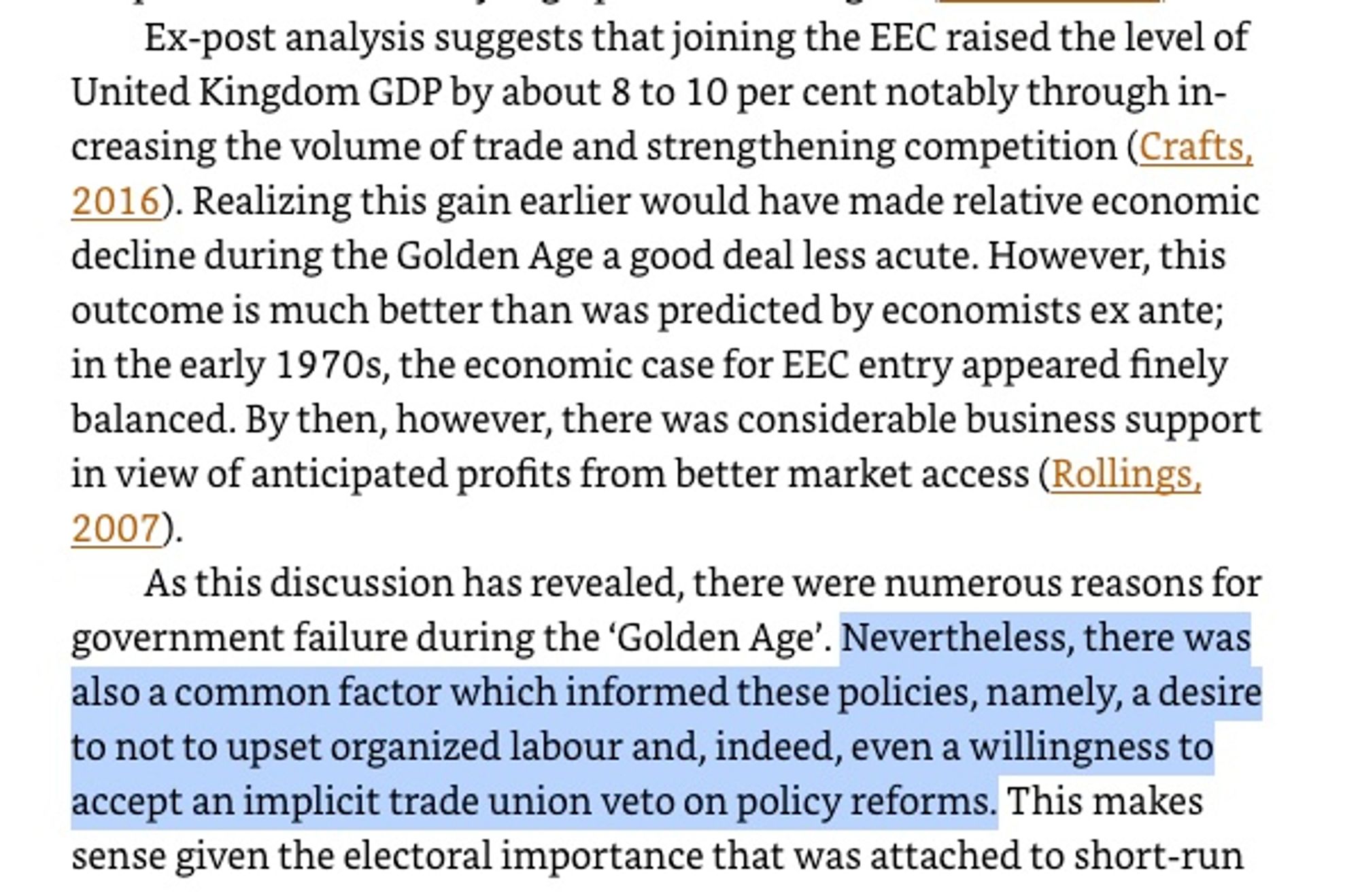
Second, the problems he identified with the British economy circa 1979 were: (1) weak private sector competition; (2) bad corporate governance; and (3) bad industrial relations.
First, he gave a lot of credit to the 1973 entry into the EEC, not simply the 1980s policy changes.
